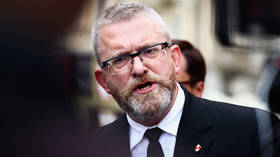Transatlantic opinion split may hamper G20 solutions
G20 finance ministers and top bankers are meeting in London to try to remedy the economic meltdown. Europe insists on tighter control and regulation of markets, while the US backs more stimulus spending.
When leading US investment bank Lehman Brothers went bankrupt in September 2008, the day became a benchmark for the collapse of the whole financial system. Back then the company’s quantitative analyst Andrey Greenberg didn’t know how bad things were going to get.
He soon lost the next job he got – only to find himself in a situation he sees few ways out of:
“I have a mortgage, I now don’t have a job and I still have to pay for the mortgage. If I don’t get a job within the next few months, I’ll have to think of some other ways around,” Andrey says.
This weekend Andrey’s eyes, just like those of many others, will be on the meeting of G20 finance ministers in Britain’s capital.
With the growing divide between the US and many European countries over the best way forward, experts are starting to doubt whether a global deal in London can be secured.
“Our hope is that they will do the right things, which will be that they will produce enough capital to recapitalize the IMF, they will provide some kind of global stimulus package – however my concern is that they will not be successful,” says Kingsmill Bond, chief strategist from investment bank Troika Dialog.
The US is pushing for more fiscal stimulus effort from other governments while Europe says it has gone as far as it can on anti-recession spending for now, and instead the focus should be on improved regulation to prevent too much risk-taking in the global financial system.
The main question now is whether the finance ministers of the world’s largest economies will find a common ground this weekend. There is already certain unease in the world stock markets ahead of the meeting.
“If it fails to achieve anything or if it fails to achieve an asset available for the IMF – I think the markets would take it badly,” Kingsmill Bond says.
The current divide, say the economists, probably means that the leaders will be forced to settle for a declaration of shared goals rather than a clear roadmap.












